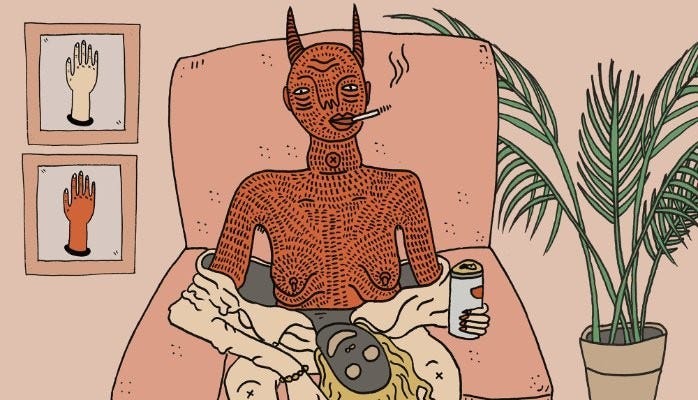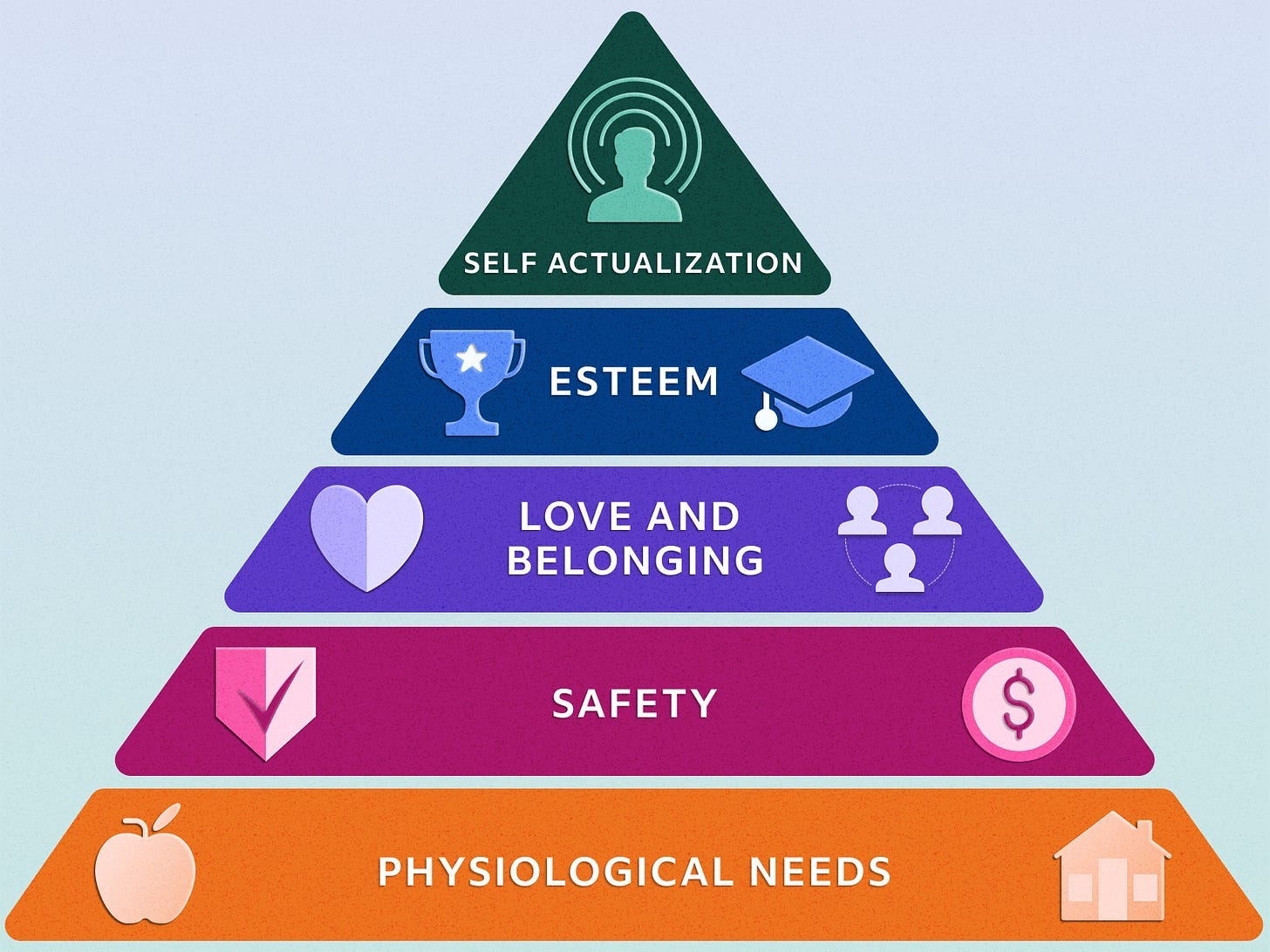Theory & Reality - Part 1
A novice perspective on Psychology and Change.
In classic Novice Writing fashion, I’ve spent much of my adult life exploring different concepts, theories and ideas to make some sense of my own experiences.
It is also literally my job.
During the day I put on my human mask and project manage the shit out of various things and stuff. I have spent hours in courses, lectures and seminars to understand how other people tick. A lot of this theory is based in researched psychology and scientific evidence so I feel confident that it works (probably.)
These ideas aren’t just useful in the office. I’ve used them in my basic counselling training, with friends and on myself.
I thought it might be helpful to explain some of the theories I’ve found interesting and how I’ve interpreted them in my daily life.
You might be familiar with a lot of them so please let me know in the comments if you have a different perspective!
Me after a long day at work
Copyright: Polly Nor
Theory - Maslow’s Hierarchy of Needs
Disclaimer: I am not a psychological professional or academic - just a novice trying her best!
I’m kicking off this series with probably the most ubiquitous triangle in modern psychology - Abraham Maslow’s Hierarchy of Needs (1943)
At its core, Maslow’s theory attempts to demonstrate the five needs that have to be met in order for a person to be fully satisfied.
The pyramid is ordered as per the below:
Physiological needs such as adequate food, shelter, water
Safety needs such as money, security and a low level of perceived threat
Love and belonging needs are described as friendship, relationships and a sense of community
Esteem needs could be identified as a combination of achievement or recognition which leads to…
Self-actualization. In basic terms this is becoming who you are truly meant to be; a poet or an artist for example.
Later in his work Maslow added Transcendence needs to the pyramid indicating that once the above needs are met, one is able to act in a way beyond themselves to help others, ultimately becoming a more holistic and spiritual member of society.
If basic needs are not met at each stage a person is not able to move onto the next rung on the pyramid, thus causing a negative impact on a person’s well-being leading to anxiety or a feeling of being stuck.
The hierarchy of needs reflects the complex nature of human nature by combining both our base physical needs with our spiritual needs. We need both areas to be attended to before we can be truly fulfilled.
Reality
It seems common knowledge that you need to get enough sleep, adequate hydration and nutrition to feel good but for me these are often the things that start to slip first in times of stress.
I can tell when I’m entering a downward spiral - going to bed late, doom scrolling, eating chocolate fingers like they’re going out of fashion etc.
I’m learning that when life is chaotic and everything is overwhelming that I just need to get my ‘physiological needs’ together until the storm passes.
I’m really privileged that I live in a society where my safety needs are often met. I have comfortable shelter, no real threats and access to healthcare.
There have been times in my life where I haven’t always felt safe, in those moments I have turned to my support system - friends, family, my husband.
Conversely during my breakdown, I wanted to isolate myself. I didn’t want to face anyone apart from my dog. I am really grateful for my loved ones but I just couldn’t communicate with them. It’s interesting that the things that are healthy or best for us are sometimes pushed away by our confused brains.
When it comes to esteem and self-actualisation needs, I imagine that I am a typical millennial in that these things seem so elusive or at least impermanent. I’ve had to radically reconfigure what actually brings fulfillment to my life over the last year.
Finding Substack has been game changing for me. Not only has it given me a creative outlet but I have also found a community that makes me feel worthwhile.
I feel proud of myself for writing, using my voice and being vulnerable with people I’ve never met.
I think I’d have to take a very long look in the mirror if I thought I had reached any form of transcendence or enlightenment. Honestly, I think those things are probably life-long pursuits and I doubt that I’ll ever know if I’ve even reached those lofty heights.
What I do know is that I have enjoyed helping others through my writing and therapeutic conversations over WhatsApp voice notes. I’m also exploring a spiritual, witchy side I didn’t think existed, or maybe it did but had been suppressed.
Final Thoughts
Maslow’s hierarchy of needs has helped me to better understand what the people around me need as well as how I can best help myself in times of crisis.
I would suggest though that there are times where some needs are more prevalent than others. For example, the need for love can override a desire for wealth or self-actualization.
There has also been criticism of the theory in that most of Maslow’s research was based solely on western, white, middle-class men. It suggests that creative expression or actualisation is only accessible for the privileged few which is of course, not true.1
My takeaway is that the hierarchy of needs is still a useful tool to understand the complex drivers behind human behaviour.
By using these areas of need, we can better relate to ourselves and others in a personal, work or wider social context.
I’d love to hear your thoughts about the model and how you might interpret it in your own life.




Great writing, thanks so much - as you can see from my scribbles, I’m no academic either, that’s the beauty of Sub-stack though, I want more.
Your words really resonate with me, thanks and keep up the great writings.
Another great piece NW - the hierarchy gives a useful logical framework for how humans think/feel/ behave